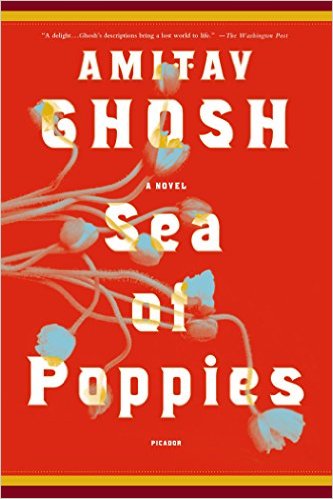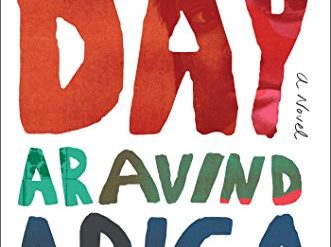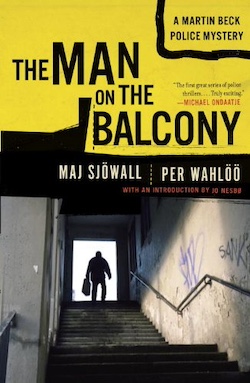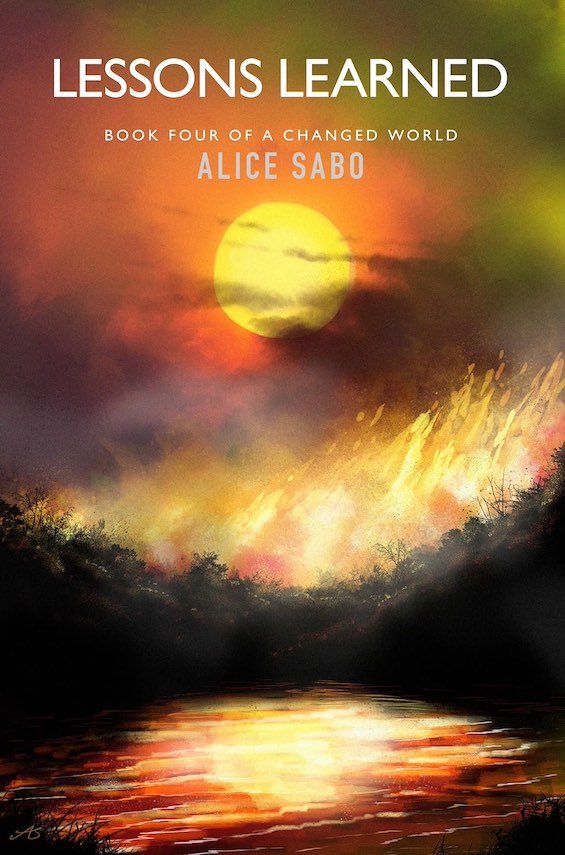
Amitav Ghosh reaffirms his place as one of contemporary India’s greatest writers with this extraordinarily rich tale of class conflict, exploitation, and forbidden love against the background of the opium trade.
The story is set in 1838, shortly before the First Opium War in China, which set the stage for mounting conflict in India, as the opium trade declined. Ghosh’s unforgettable characters quickly take on lives of their own, thinking and speaking in their own, often uniquely personal variations on the languages and dialects of the era.
To achieve the remarkably musical cadence of the book’s dialogue, Ghosh immersed himself in contemporaneous dictionaries, grammars, and diaries. Sea of Poppies is a brilliant accomplishment. It’s worth re-reading—it’s that good.
Sea of Poppies (Ibis Trilogy #1) by Amitav Ghosh (2008) 559 pages ★★★★★
The jacket copy for the novel reads as follows:
In a time of colonial upheaval, fate has thrown together a diverse cast of Indians and Westerners, from a bankrupt raja to a widowed tribeswoman, from a mulatto American freedman to a freespirited French orphan. As their old family ties are washed away, they, like their historical counterparts, come to view themselves as jahaj-bhais, or ship-brothers. An unlikely dynasty is born, which will span continents, races, and generations.
The vast sweep of this historical adventure spans the lush poppy fields of the Ganges, the rolling high seas, the exotic backstreets of Canton. But it is the panorama of characters, whose diaspora encapsulates the vexed colonial history of the East itself, that makes Sea of Poppies so breathtakingly alive—a masterpiece from one of the world’s finest novelists.
For related reading
Sea of Poppies is the first book in Amitav Ghosh’s extraordinary Ibis Trilogy. I’ve reviewed the second book in the trilogy, River of Smoke, at A brilliant Indian novel about the first Opium War. My review of the third volume is An outstanding Indian novelist looks at the Opium War. And for a history of the drug, see the author’s Smoke and Ashes: A Writer’s Journey Through Opium’s Hidden Histories (A new history of opium as addictive as the drug).
Another author, Edward Rutherfurd, dramatizes the Opium Wars in his monumental historical novel, China (Chinese history made fun and easy in a compelling novel).
You’ll find this book on my list of The decade’s top 10 historical novels, mysteries & thrillers, and science fiction
You might also enjoy:
- Good books about India, past and present
- 30 insightful books about China
- 20 most enlightening historical novels.
And you can always find my most popular reviews, and the most recent ones, on the Home Page.




























Howdy! Someone in my Facebook group shared this site with
us so I came to give it a look. I’m definitely loving the information. I’m book-marking and will be tweeting this to my followers!
Outstanding blog and superb design and style.
Thank you so much! I appreciate the interest.